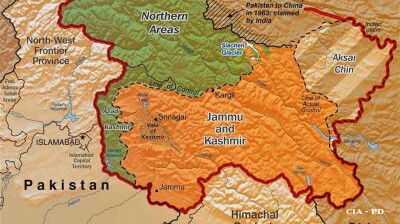Iranian President Masoud Pezeshkian’s remarks on August 10, suggesting renewed negotiations with the United States to avoid further attacks on nuclear facilities, have ignited sharp reactions across Iran’s political landscape.
Iran had been preparing for a sixth round of nuclear talks with the US when Israel launched a strike on June 13, triggering a 12-day conflict. The United States soon joined the fray, targeting Iran’s key nuclear sites in Natanz, Fordow, and Isfahan. President Donald Trump later declared the facilities had been completely “obliterated.”
Although the war ended with a US-brokered ceasefire on June 24, Trump has repeatedly warned that any attempt by Iran to rebuild its nuclear infrastructure would prompt further strikes. “We wiped out their nuclear possibilities. They can start again. If they do, we’ll wipe it out faster than you can wave your finger at it,” he said at a news conference in Scotland in late July.
Pezeshkian, who had previously stated in March that Iran would rebuild its nuclear sites if attacked, appeared to soften his stance, defending renewed dialogue with Washington as a means of preventing further escalation.
In remarks aimed at critics of diplomacy, he said: “Dialogue does not mean surrender. If we don't talk, do you want to fight? Well, [the US] came and hit [the nuclear facilities]. Now, if we go and make it again, it will come and hit them again. Someone tell me, what do we want to do?”
Speaking at the presidential office before a group of media executives, Pezeshkian also stressed that no action would be taken without the approval and coordination of Supreme Leader Ayatollah Ali Khamenei, even if it contradicted his own views. He cited religious teachings that discourage rejecting peace even when offered by an adversary, adding: “I don't think we can get anywhere by fighting.”
His comments have drawn fierce criticism from political and military figures. In an interview with ILNA on August 11, IRGC Deputy Commander-in-Chief Ali Fadavi stated without naming Pezeshkian directly: “The fight between truth and falsehood has existed since the beginning, and it will continue until the end.”
Hamid Rasai, a vocal MP, accused Pezeshkian of lacking political competence, writing on Telegram: “Don’t these positions, in the eyes of the enemy, mean passivity, weakness, and helplessness in the face of their threats and military aggressions, and naturally provoke them to invade our country? Is a personality with these contradictory positions, many of whose words are like water in the enemy's mill, politically competent?”
Hossein Shariatmadari, editor-in-chief of the hardline Kayhan newspaper, sarcastically expressed hope that Pezeshkian’s remarks were merely a “slip of the tongue,” and criticised the framing of the issue as a binary between war and negotiation. He wrote: “Pezeshkian did not explain that when the United States has predetermined the ceiling of negotiations, can negotiation have any other meaning than surrender?”
Fouad Izadi, a state television analyst close to Pezeshkian’s rival Saeed Jalili, echoed the concern, posting on X: “The perception of American officials from Mr President's remarks will be that the next attack on Iran will not have a serious cost for the United States.”
Hardline news agencies also weighed in, accusing Pezeshkian of projecting weakness. In an article titled “Words Are Not Neutral, Mr Pezeshkian! Be Careful,” Tasnim claimed his remarks undermined national interests and even the very negotiations he advocates.
Despite the diplomatic push, uranium enrichment remains a central obstacle. While Washington demands zero enrichment, Iranian officials insist on retaining enrichment rights as a matter of national sovereignty.
Deputy Foreign Minister Majid Takht Ravanchi stated Iran would consider temporary restrictions in exchange for sanctions relief but "cannot agree to a halt to enrichment under any circumstances."
Features

BEYOND THE BOSPORUS: Prosecutors make move on “fictitious export schemes” of Istanbul Gold Refinery
Observers point to intra-regime gangs seizing each other’s wealth, remember Erdogan’s “Hello Fatih” phone calls and ponder whether wanted man Turgay Ciner is in London.

Taliban visit to India upsets Pakistan, signals New Delhi's changing Afghan posture
Coinciding with the visit, Pakistan conducted military operations inside Afghanistan, followed by airstrikes on multiple border towns. Retaliation against Pakistan's police training facilities and border outposts followed.

Pakistan’s India-shaped chip on the shoulder, and why a peaceful coexistence is as elusive as ever
Pakistan must first redefine how it sees India - not solely as a threat to be contained but as a neighbour with whom coexistence is unavoidable. That psychological leap has eluded generations of Pakistani leaders.

Trump shocked by China’s move on rare earths, threatens more 100% tariffs
"Some very strange things are happening in China!" Trump wrote in a post on his Truth Social account on October 10, adding "They are becoming very hostile."




